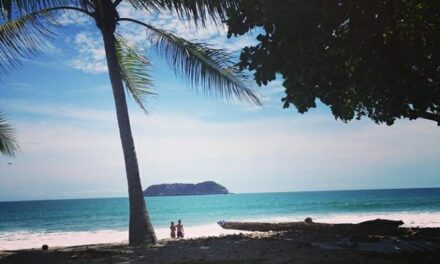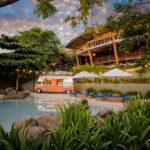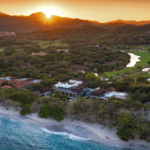Many expats will tell you how they became enamored with Costa Rica after visiting and seeing its unparalleled beauty, its natural wonders, and meeting its friendly people. A fair percentage of those who have come here on vacation decide that they eventually want to relocate to the country, I happen to be one of those people.
Often at first, some who move here, choose to be “perpetual tourists” and leave the country every 90 days to re-enter on a tourist visa. For 4 years I chose this method and enjoyed trips to Panama, Nicaragua and a Colombian island named San Andreas. Eventually this can become a bit bothersome. One way to avoid this hassle is to become a legal resident of the country.
This process can be difficult and tedious if you try to do it on your own. So, it is best to hire a reliable and reputable lawyer to assist with the complicated process of maneuvering through Costa Rica’s way of doing things.
If you are choosing to purchase a home, invest in a development, often the real estate person or group you are working with can offer insight on who to choose for help. Just make sure they are established and have been here helping people for many years. I personally have done business with The Costa Rica Team and could not recommend them more.
There are even people who will assist you in moving and getting settled into your newly chosen paradise. I highly recommend Sarah Elena, check out her YouTube channel, she offers a ton of free informational videos and her personal concierge service for the actual move to Costa Rica.
Here are the 4 most common ways you can become more than a permanent tourist and not need to leave the country every 90 days. All of these methods offer temporary residency, renewed annually for three years and at that point you may apply for permanent residency.
- “Pensionado” Retiree Residency in Costa Rica
Requires proof of a minimum monthly income of $1,000 from permanent pension source or retirement fund.
Must visit Costa Rica at least once a year.
Can claim spouse and dependents under 18 years of age.
Cannot work as an employee but can work remotely back in country of origin or start your own business.
- “Rentista” Legal Residency in Costa Rica
Requires proof of US $2,500 per month income for at least two years, guaranteed by a banking institution, OR a US $60,000 deposit in an approved Costa Rican bank. One amount covers the family.
Must visit Costa Rica at least once a year.
Can claim spouse and dependents under 18 years of age.
Cannot work as an employee but can work remotely back in country of origin or start your own business.
- “Inversionista” Investor residency in Costa Rica
Investment of US $200,000 in a business or property. This can be non-commercial property such as a home or land you plan to develop later.
Must visit Costa Rica at least once a year.
Can claim spouse and dependents under 18 years of age.
Income allowed from the project.
- “Vinculo” Residency Costa Rica
First-degree relative status with a Costa Rican Citizen (through marriage to citizen or having a Costa Rican child) OR may apply after three years in another status.
Must visit Costa Rica at least once a year.
Can claim spouse and dependents under 18 years of age.
Can work.
Can own a company and receive income.
Here is a cursory list of some of the documents that will be required to start your application.
The first three documents are required for all types of residency in Costa Rica, these must be validated within 6 months of application.
-Police Certificate of Good Conduct from your last place of residency. Valid for 6 months. Required for applicant, spouse, and any children ages 15 to 25.
-Birth Certificate. Required for applicant, spouse, and all dependent children (up to 18 years old or up to 25 if a university student — proof of enrollment is required).
-Marriage Certificate (if spouse wishes residency). Proof of a prior divorce is not needed.
-Income Certificate for Pensionado and Rentista Residency (required for only the applicant, valid six months).
-For pensions from the U.S. Social Security or Canada Pension, it is easier to obtain the certification at the U.S. or Canadian Embassy in Costa Rica. (You must provide them with proof of your pension.)
-Pensions from other government agencies (all countries) must have a letter stating that the pension is paid by the government. Pensions from other institutions must have a statement verifying the type of institution paying the pension.
All the above residency documents (other than those obtained in Costa Rica) must be:
Notarized by a local public notary if they do not have an official government seal. If in doubt about the need to have it notarized, check with the local Costa Rican consulate.
Please keep in mind that some of these requirements may change quickly. Costa Rican officials are working hard to make it easier for investment here. They are looking at many ways to make moving to Costa Rica an easier process.
Ultimately, if you are thinking of moving to this wonderful country, I cannot think of a better time than right now. With all the trouble in the world, who wouldn’t want PURA VIDA?










